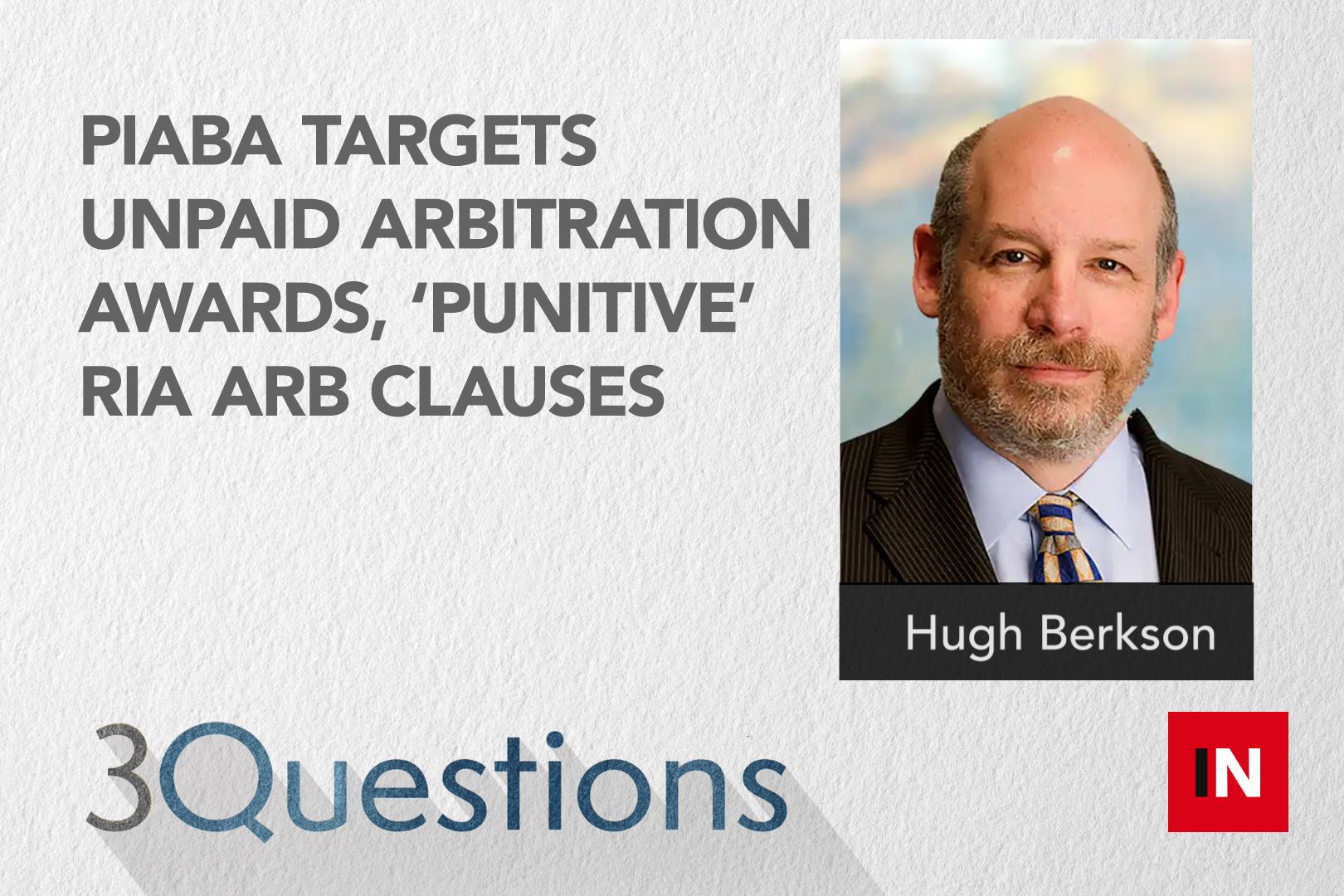Brokerage is an option of last resort — almost
Reg BI continues to incentivize the shift from brokerage to advisory when it comes to how financial advisers and wealth managers are meeting the investment needs of their clients, says John Taft, vice chairman at Robert W Baird & Co.
Mark Schoeff JR [00:00:03] Welcome to Three Questions, I’m Mark Schoeff JR., a senior reporter at InvestmentNews. Today we’re talking to John Taft, vice chairman of Robert W. Baird and Company. He is the former chief executive of RBC Wealth Management, a former board member of the Securities Industry and Financial Markets Association. John has written a couple of books and established a blog about the financial services industry called Finance for the Greater Good. Thank you for joining us, John.
John Taft [00:00:32] It’s my pleasure, Mark. Thank you for having me.
Mark Schoeff JR [00:00:34] How have brokerages business practices changed since regulation best interest went into force in June 2020?
John Taft [00:00:42] Well, there are a couple of answers. One is the micro answer, so. And that answer depends on where individual firms were when it came time to start complying with Reg BI, and nobody was in the same place. As you recall, we had the DOL fiduciary proposal and firms were developing policies and procedures to comply with that. That was then kicked out of the courts. So some firms got a long way towards doing what they needed to do to comply with Reg BI, and some firms had more work to do. So that’s at the micro level. But but macro level across the industry, I would say that there are a couple of things. First of all, Reg BI has I know it’s accelerated, but it just continued to incentivize, if you will, that the shift from brokerage to advisory when it comes to how financial advisors and wealth managers are meeting the investment needs of their clients. And it’s it’s gotten to the point mark where, you know, brokerage is almost more trouble than it’s worth, even though in many cases it may be the best solution for the client and we can go into that. But there are so many pitfalls right now and so many things that you have to be careful about doing that are brokerage is is an option of last resort almost these days, which is a 180 degree change from where it was when I entered the industry now. Beyond that, three things are a couple of other things I would say. One is that there’s no question we have progressive saying, you know, Reg BI wasn’t strong enough. It didn’t. It hasn’t changed enough the way our financial advisors behave. That’s not true. There is far more focus right now on making sure recommendations are the best possible recommendation for the client. All things considered, including cost, and that’s a very different, very different approach than mere suitability, which was the standard before Reg BI came in. And the other thing it’s the Reg BI’s done is it’s just an enormous amount of emphasis on documentation. Have to document the basis for recommendation. So when regulars come in, regulators come in to review it. How can you prove then in this particular case, what you proposed to the client and execute for the clients is in their quote unquote best interest?
Mark Schoeff JR [00:03:21] Well, Reg BI was implemented under the previous SEC chairman Jay Clayton. The current SEC chairman, Gary Gensler, is pursuing an expansive regulatory agenda. How would you evaluate his leadership of the agency so far? We’ll be coming up on a year and a couple of months.
John Taft [00:03:40] Chairman Gensler is formidable. He had a previous tour of duty, of course, as chairman of the CFTC during and after the financial crisis, so he knows the way Washington works. He then went to MIT to teach a course on cryptocurrencies. Decentralized finance brings that back into the role, and he’s got the support of progressives in Congress and in the White House when it comes to an ambitious agenda for the SBC. So he knows what he’s doing. He’s got boundless energy. Someone the other day described the incoming regulatory proposals that that we’re all experiences as experiencing as a bombardment. And I think that’s, you know, assuming he gets some sleep and doesn’t burn out, we’re going to see we’re going to see one of the most proactive regulatory periods since the financial crisis in wealth management and across the financial services industry.
Mark Schoeff JR [00:04:50] Our first two questions and focused on the SEC. Let’s turn our attention now to the Department of Labor. The Trump administration’s dual fiduciary rule, at least most of it went into force on February 01. But there’s more to come. What do you expect from the next DOL fiduciary proposal in terms of defining who is a fiduciary for retirement accounts?
John Taft [00:05:18] Well, the short answer is nobody knows. But the water cooler chatter is that we’re likely to see a proposal that looks a lot more like the original DOL fiduciary rule than the Trump administration rule that’s currently in effect. And in my opinion, that would be a regrettable return to what I think was one of the worst regulatory proposals I’ve seen in my career, and that was the DOL Fiduciary Standard 1.0. You know, one of the problems we have mark is that the regulation that applies to wealth managers isn’t something that investors understand, and it’s it’s basically got three different parts. One part applies to retirement account, one part applies to advisory accounts, one part applies to brokerage accounts. Even if you’re talking to the same advisor about three different types of accounts, that advisor is theoretically operating under three different regulatory regimes. And what the Trump administration was trying to do and which we supported was trying to conform retirement accounts to the Reg BI framework in which we’re operating, which is pretty close to the advisory standard, regardless of what its critics say. So that we had sort of one gray hat instead of three different colored hats that advisors had to wear. Be a shame to go back to to where we were before, where we have confusing and conflicting regulatory rules that apply to the advice that wealth managers are giving to their clients. But that’s what we, I think, what the industry fears may happen.
Mark Schoeff JR [00:07:03] OK, well, thank you for your time today, John.
John Taft [00:07:05] Always a pleasure, Mark.



